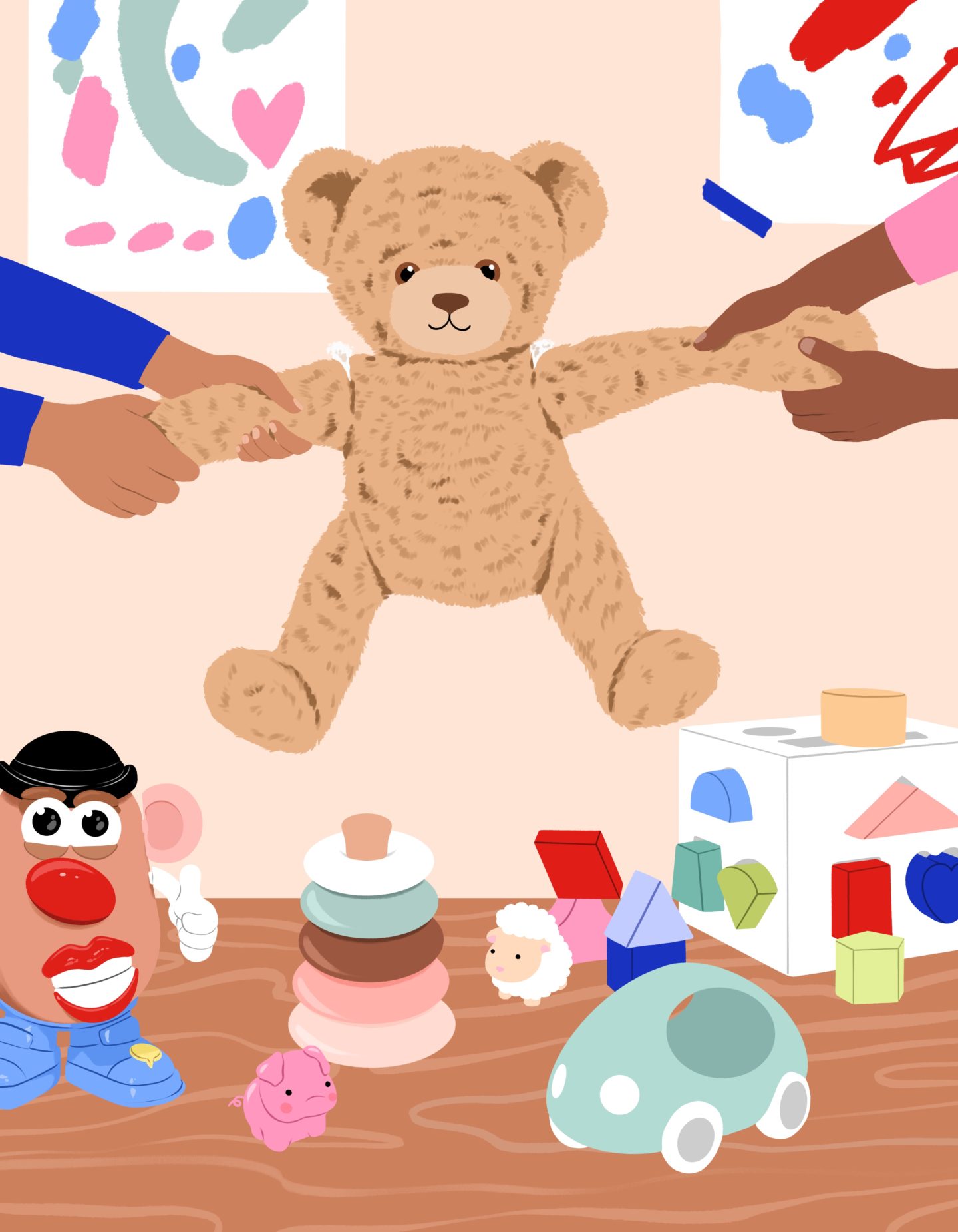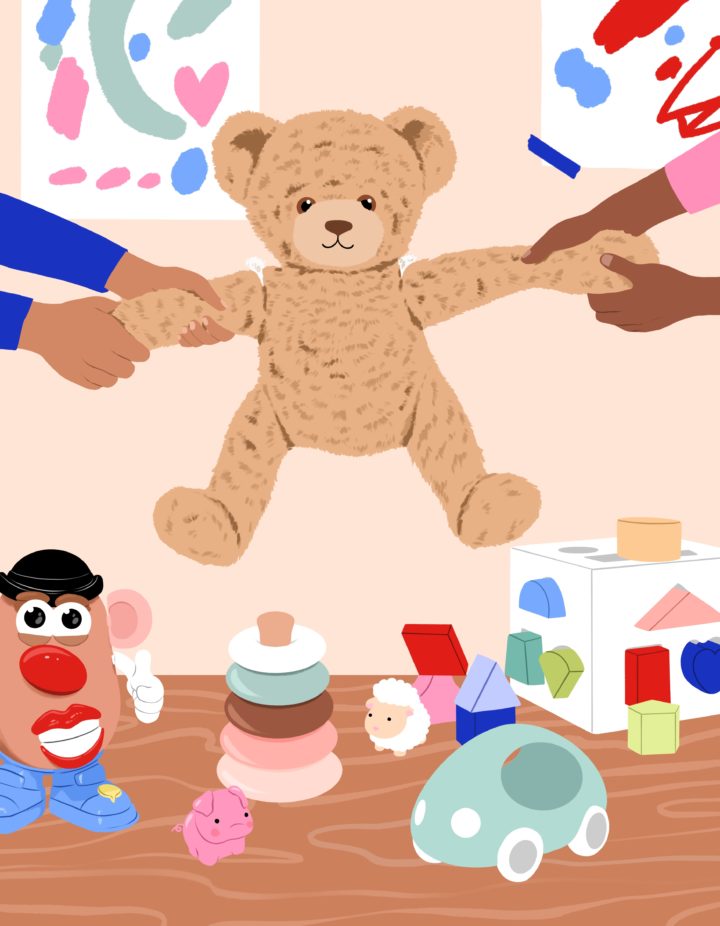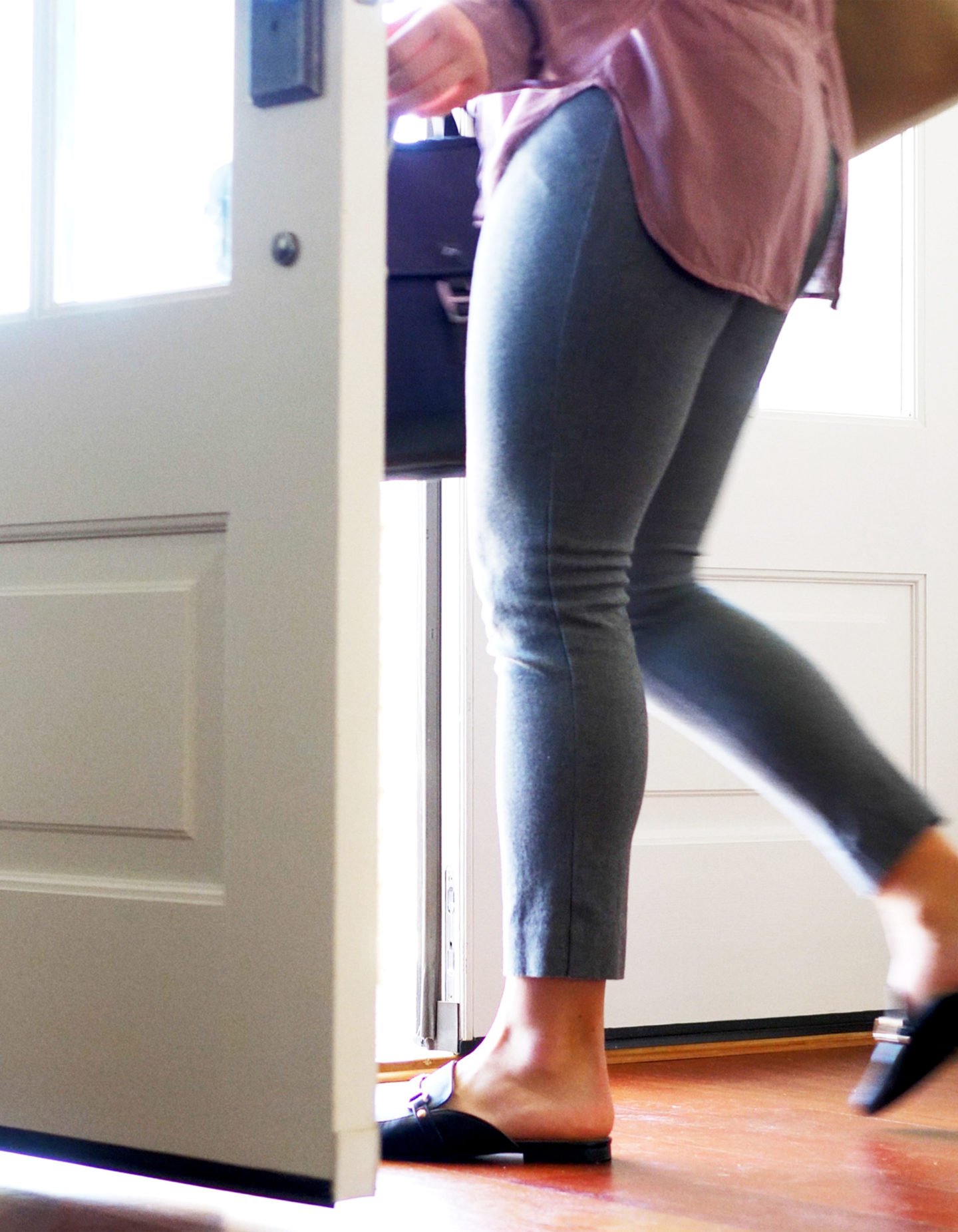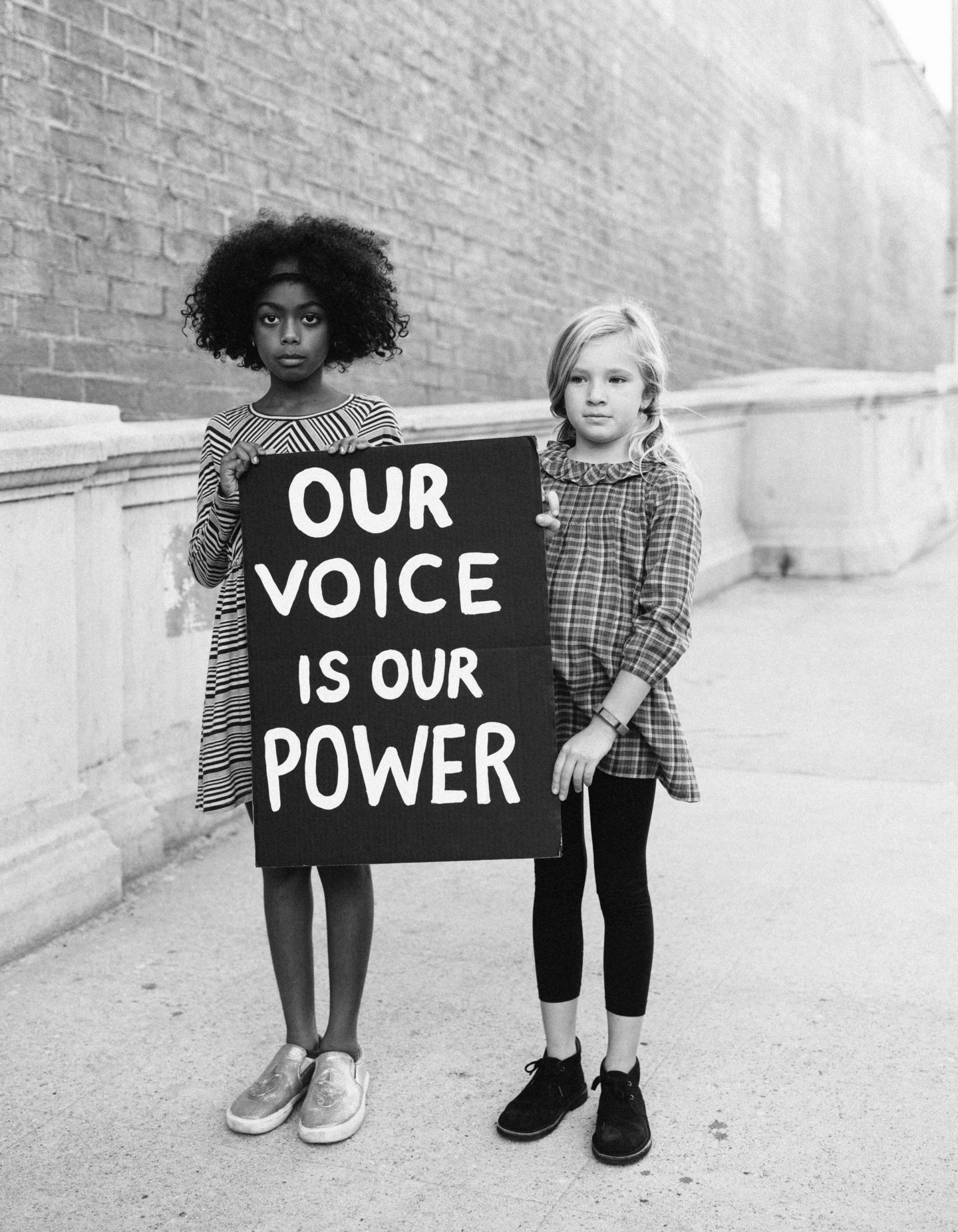 From starting solids to sleep training, parenting is full of decisions that most of us are making on the fly. Should we go back in and rock them to bed? Is television really the worst thing ever? Most of our choices reflect our individual perspectives on parenting, family and various levels of by-the-bookdom, but once in a while it helps to call in the big guns like a true expert opinion. So we’re bringing you answers to common parenting questions thanks to Babe’s resident pediatric expert, Dr. Aliza Pressman, Ph.D., co-founder of the Mount Sinai Parenting Institute and host of Raising Good Humans podcast. This week she tackles sharing, how to deal when your kid just can’t, and why it’s a skill all kids must learn, as uncomfortable as it may be.
From starting solids to sleep training, parenting is full of decisions that most of us are making on the fly. Should we go back in and rock them to bed? Is television really the worst thing ever? Most of our choices reflect our individual perspectives on parenting, family and various levels of by-the-bookdom, but once in a while it helps to call in the big guns like a true expert opinion. So we’re bringing you answers to common parenting questions thanks to Babe’s resident pediatric expert, Dr. Aliza Pressman, Ph.D., co-founder of the Mount Sinai Parenting Institute and host of Raising Good Humans podcast. This week she tackles sharing, how to deal when your kid just can’t, and why it’s a skill all kids must learn, as uncomfortable as it may be.
Q. Dear Aliza,
Help. My toddler lit-er-ally cannot share. We organized these small Covid-friendly playgroups happening all week and she’s kind of ruining it for us. She throws a huge tantrum every time she has to share something of hers, yet demands that other kids share their stuff with her. Please school me on Sharing 101 because I’m truly afraid we’ll be forced to vacate said pod and homeschool 24/7. And I can’t do that again.
– Josie P, mama to Sybil, 3.
A. Prepare in advance with your child and go over your rules, which may entail three things that can go in their “not sharing” bin or drawer. But remind your child that once their friend comes over, there’s no “mine” anymore. Toys and things are now property for everyone and they must take turns with everything. You can say, “That’s what we do when we host someone.” And, if they don’t want someone playing with it, then they can’t play with it either. It can be an emotional stretch for them but it’s a good emotional stretch. Sometimes it’s uncomfortable because they don’t want to give a turn with something they want to play with, and those are uncomfortable feelings. But it’s a trade off because the good part is they get to have a playdate and may even get to enjoy their friends enjoying their toys. Maybe, maybe not.
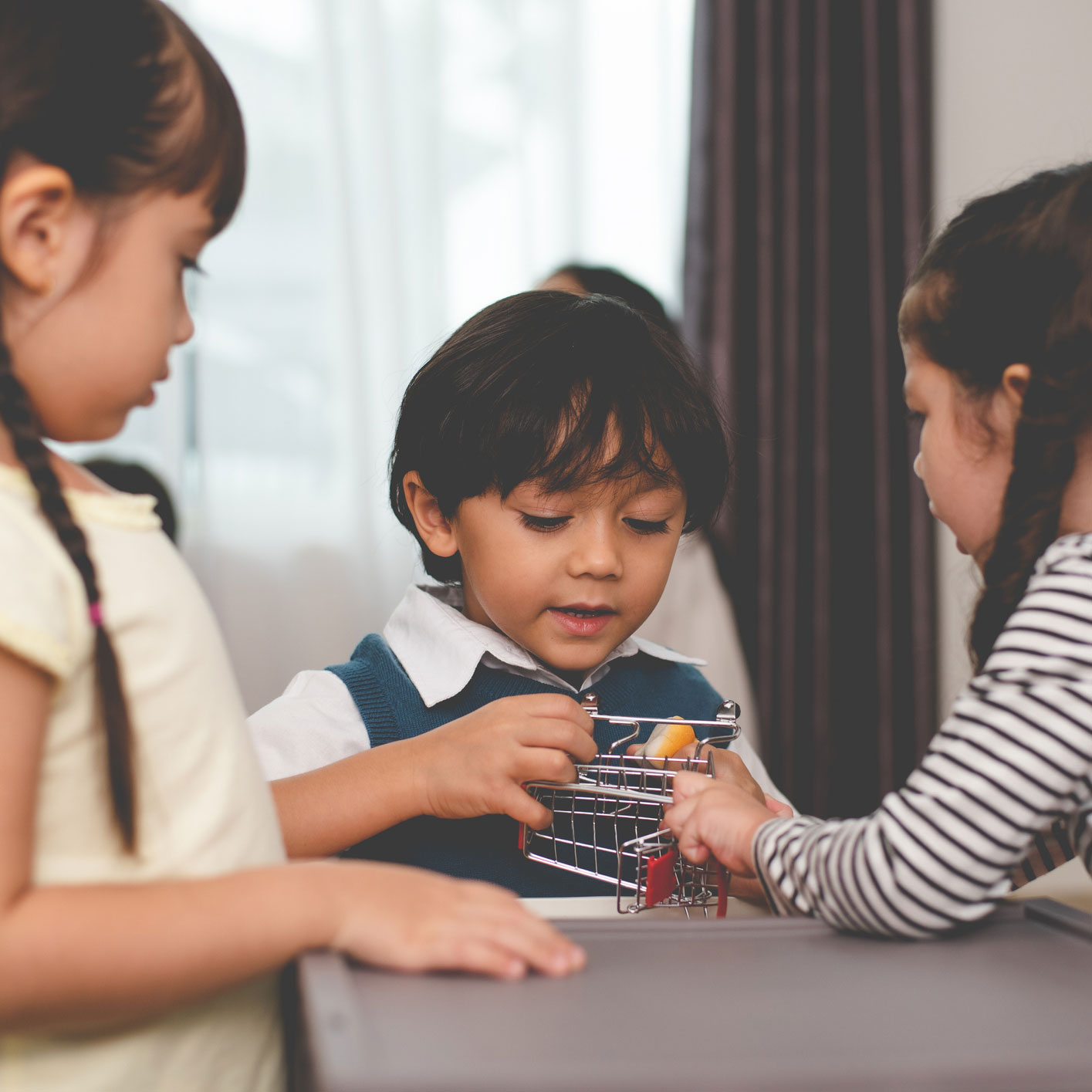
Photo by Stocksy
For a 16-month-old, it doesn’t matter. With them it’s that their guests first get a turn and then they can have a turn. You sit with them in their discomfort and their icky feelings. But you set a boundary and know that you’re giving your kid the gift of being uncomfortable and struggling because you know that they’ll come out OK. Also they see you know, and that you’ll be there for them. Avoid asking the other person if they can just help you out. The goal is to get your child used to that because it’s an inevitable part of life.
You set a boundary and know that you’re giving your kid the gift of being uncomfortable and struggling because you know that they’ll come out OK.
If they just can’t deal, then they have choices. You can say, “This playdate isn’t working out because you don’t feel like taking turns,” (or your friend doesn’t want to take turns). Let’s reschedule.” Sometimes it’s hard for other people to share their things. If you’re at someone else’s home, don’t be judgy of the other kid. You can ask the parent what are the things that are comfortable for their child to take turns with and let’s focus on those. Or let’s just go outside. And the other thing is, if they’re not your kid – then you can’t control it, but you can say, “It looks like Billy doesn’t look like taking turns right now. You don’t always like taking turns. Let’s think about how that makes you feel. What can we do instead?”
If your child is older, then tell your kid to share! You can say, “Look I’d prefer you give that turn to your friend, but if you can’t, go play in your room. This doesn’t seem like a time for a playdate right now.” It’s not a punishment, just natural consequences. Maybe it wasn’t a very good playdate and you can try again another time or plan differently, but they definitely can’t have it if they can’t share or give a turn. And just remember to remind them that it’s uncomfortable and that we have to practice feelings we don’t like. And when we practice, it gets better.
